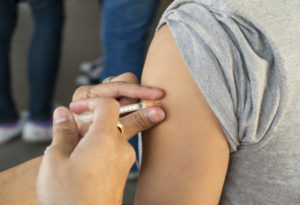Travel Vaccinations and Health Checks.
Every year, Australian travellers become ill, or even die, while travelling overseas. Basic health check-up and travel vaccinations can prevent overseas Infectious diseases. Make an appointment with South Yarra Clinic for a basic health check-up at least eight weeks before you depart.
Infectious diseases that cause some of the overseas illnesses are often preventable through vaccinations. It’s important that you discuss your personal travel plans with a health professional to ensure you have the correct vaccinations for your trip and any booster doses of childhood vaccinations you may need.

Vaccines can prevent you from contracting some diseases, but it’s also important to remember:
- New vaccines are constantly being released but diseases continue to evolve.
- Vaccinations may be an entry requirement of some countries so check with the foreign mission of the countries you are intending to visit or transit. In some countries you may be refused entry or required to have the vaccination at the border. We recommend you seek medical advice from your GP or travel doctor and have any vaccinations prior to leaving Australia.
- It’s never too late to vaccinate; however, some vaccines require a long period to take effect and more than one dose may be needed.
- You may need boosters for childhood vaccines.
- Health risks within a country can vary from one region to another and local authorities may be slow to announce outbreaks of disease.
At South Yarra Clinic, our doctors will inform you of the vaccinations required for the country that you are travelling to. Common vaccinations include:
- Hepatitis A
- Salonella Typhi
- Yellow Fever
- Rabies
- Japanese Encephalitis
- Meningococcal Polysaccharide
- Tetanus, Diphtheria, Pertussis and Polio
Medication
If you’re taking medicines overseas, we recommend that you:
- discuss with your doctor the medication you’ll need to take
- carry a letter from your doctor detailing what the medication is, how much you’ll be taking with you, and stating that it’s for your own personal use
- leave the medication in its original packaging so it’s clearly labelled with your name and dosage instructions.
If you’re travelling with medication, make sure it’s legal in the countries you’re visiting by contacting the relevant foreign mission in Australia.

If you need to travel with large quantities of medication, it’s good practice to separate the quantity between your luggage in case bags go missing. Keep all medication in the original, labelled container to avoid customs problems.
If you have to inject your medication, it may be preferable to carry your own needles and syringes if it’s allowed in the countries you’re visiting. If you buy needles and syringes overseas, ensure they are sealed and sterile.
Take enough medication to cover the length of your trip. If you need to purchase medication at your destination, be careful not to buy imitation or counterfeit medications and prescription drugs, and always check the strength of a medication with a doctor. Be aware that packaging and labelling may be similar to those available in Australia, but the strength and active ingredients can vary from country to country.
It’s an offence to carry or send Pharmaceutical Benefits Scheme (PBS) medication overseas unless it’s for your own personal use, or for the use of someone travelling with you. You could be fined $5,000 and spend two years in prison if you break the law.
